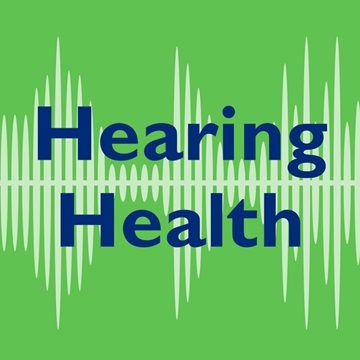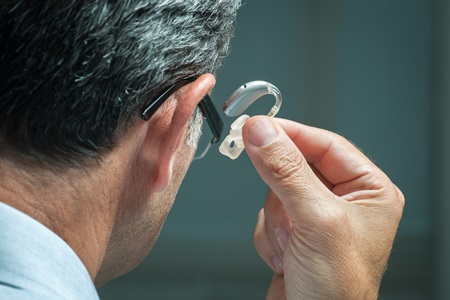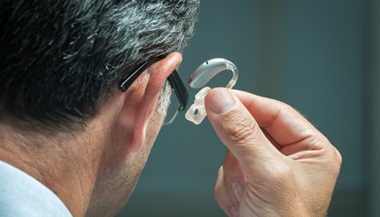How Do Hearing Aids Work

How Do Hearing Aids Work?
Hearing aids work by amplifying sound through a three-part system:
-
The microphone receives sound and converts it into a digital signal.
-
The amplifier increases the strength of the digital signal.
-
The speaker produces the amplified sound into the ear.
Digital Hearing Aids
Digital hearing aids can be customized to an individual’s hearing loss. After hearing testing is completed, the hearing aids are programmed to the specific degree and pattern of hearing loss observed in the test results. Digital hearing aids have automatic features that can adjust the volume and programming for improved hearing in different environments.
Hearing Aids: Why Choose Johns Hopkins?

Audiologists at Johns Hopkins have the expertise and experience to find the right hearing aid for you.
Hearing aid technology has dramatically improved over the years, giving you a range of comfortable and discreet devices that work with your lifestyle.
Digital Hearing Aid Benefits
There are many options in digital hearing aids today. Performance in background noise is the number one complaint of most individuals with hearing loss and that of most previous hearing aid wearers. The following techniques can help manage background noise:
Multiple listening programs
Digital hearing aids are equipped with more than one listening program. Settings include situations where there is a lot of background noise as well as situations where there is little to no background noise. Hearing aids with multiple programs may automatically change between programs or can be manually changed by the individual. Some hearing aids may also come with remote controls.
Directional microphone technology
This is also a strategy for better hearing in background noise. Hearing aids that come with just one microphone function in an omnidirectional mode (meaning sound is picked up from all around). Hearing aids with directional microphone capabilities typically have two microphones and have the ability to focus (or direct) one microphone toward the sound source while the other attempts to decrease some of the background noise.
An audiologist will help guide individuals to determine which circuitry is better for their specific hearing needs.
What You Need to Know Over-the-Counter Hearing Aids: Frequently Asked Questions

The Food and Drug Administration’s recent rule has expanded access to hearing aids by creating a new category of hearing aids: over-the-counter (OTC) hearing aids. Here are the answers to some of the most commonly asked questions about over-the-counter hearing aids.
Frequently Asked Questions About Hearing Aids

If you are considering a hearing aid, you are bound to have questions. Here are some answers, provided by Johns Hopkins experts.




